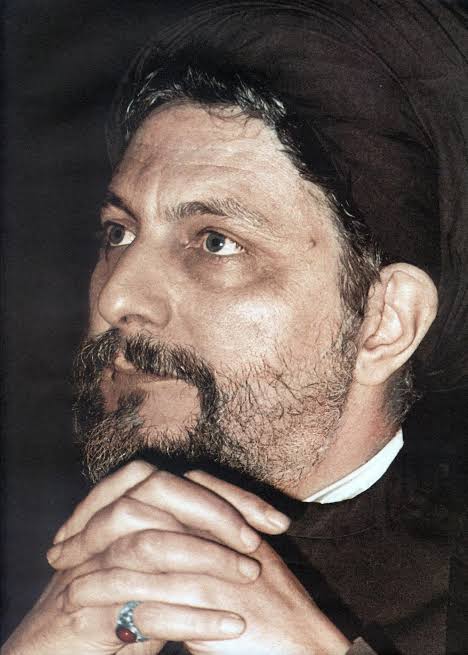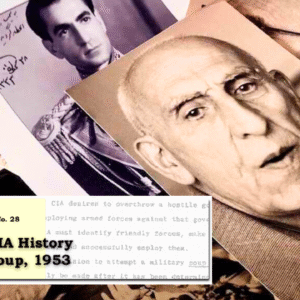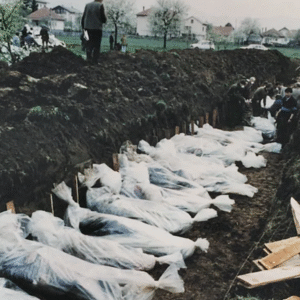47 Years After His Disappearance, Imam Musa Sadr’s Legacy of Unity, Dignity, and Resistance Lives On

August 31st, 2025 marked the 47th anniversary of the disappearance of revolutionary Islamic scholar Imam Musa al-Sadr. Imam Sadr was a highly revered Shia Muslim cleric of Lebanese-Iranian origin, who moved to Lebanon in the 1950s to advocate for the rights of the marginalized Shia community, social justice, and national unity. The influential cleric founded the Lebanese Amal (Hope) movement in 1974, including its military wing to resist the Israeli occupation, and believed supporting the Palestinian cause was a moral and Islamic duty. In 1978, Imam Sadr mysteriously vanished during an official visit to Libya then ruled by Muammar Gaddafi. Sadr was born on June 4, 1928 in Qom, Iran, to a well-respected scholarly family that had its roots in southern Lebanon, also known as Jabal Amel. He later studied Islamic sciences in Qom followed by Najaf, Iraq, earning high esteem among scholars, in addition to a law and political science degree from Tehran University in 1953. It was this combination of religious learning with modern social sciences that provided the foundation for his later reformist strategy. In 1959, Sadr was invited to move to Tyre, Lebanon, to head and serve the downtrodden Shia Muslim community. He initiated, from the start, major social programs, including the construction of schools, vocational institutes, hospitals, orphanages, and programs to end poverty through structured welfare instead of charity. He emphasized that the change process was just as vital as the outcome, and that “uprightness and virtuous conduct are basic to effective change.” By charting socioeconomic facts and locating deprivation as a root cause of social discontent, he made people masters of their needs. This approach led to the establishment of the Imam Sadr Foundation, which aimed to address unemployment, displacement, child labor, health care, and gender inequalities, and promote dialogue and cooperation among religious communities. Sadr became renowned abroad for his commitment to unity. He delivered sermons in churches, met Christian and Muslim authorities, and in 1963 attended the coronation of Pope Paul VI in Rome, the only Muslim cleric present. His torchbearer philosophy was: “Religion is not a sword to divide mankind, but a lamp to guide them together toward the truth.” Sadr’s first and most critical activities in Lebanon targeted deprivation. He viewed hunger not as a lack of food but as the deprivation of dignity. His work combined short-term relief with long-term empowerment, focusing on literacy education, women’s education, vocational training, and medical treatment. He demanded that both men and women participate in the building of community life and to foster cooperation. By equating dignity with social justice, he extended reform beyond any one faction. His movement aimed to bring the deprived into mainstream national life in Lebanon, minimizing the danger of marginalization that had the potential to lead to conflict. In 1974, he distilled his vision: “The world is not divided between Muslim and non-Muslim. It is divided between the oppressed and the oppressor.” Aware of the fragile sectarian balance in Lebanon, Sadr made national unity the bedrock of his mission. Having served as president of the newly established Supreme Islamic Shia Council in 1969, he attained a national forum which he used to make appeals for equitable representation of all communities. His ‘Movement of the Deprived,’ established in 1974, fought not only for material equity but also for national stability. It raised a voice for those excluded from Lebanon’s political and economic life while mending divisions over sectarian lines. This movement later gave birth to Amal (Hope) in 1975, a disciplined and principled mobilization that was capable of defending Lebanon against foreign invasion and internal collapse. Sadr believed that the poor had the right as well as the duty to rise up for justice but always within the boundaries of morality. As regional tensions mounted in the 1970s, particularly Israel’s incursions into Lebanon’s south and the expulsion of Palestinians, Sadr defined the need for organized resistance. He stated, “Defending the country is not only the duty of the authorities. If the authorities let us down, that does not exclude the people’s duty in defending.” This provided the basis for the 1975 formation of Amal, which is also an Arabic acronym for the ‘Lebanese Resistance Regiments.’ Sadr framed resistance, not as sectarian, but as defense of sovereignty, dignity, and justice. His sympathies with the Palestinian cause were seen as inseparable from Lebanon’s defense. By emphasizing that resistance against Israel was the concern of not only the Lebanese state, but rather of all citizens as well as all Arab and Muslim nations, he paved the way for broader Lebanese resistance movements, including Hezb-ollah. His strategy positioned Lebanon in opposition not only to the Zionist entity, which he referred to as an ‘absolute evil,’ but also to wider pressures from Western powers and imperial policies in the region. Sadr famously stated: “The honor of Jerusalem refuses to be liberated except at the hands of honorable believers.” On August 25th, 1978, Imam Musa Sadr traveled to Libya with his two companions, Sheikh Mohammed Yaacoub and journalist Abbas Badreddine, on an official visit at the invitation of the Libyan government. On August 31st, they mysteriously vanished after reportedly meeting with Libyan ruler Muammar Gaddafi in Tripoli. Libyan officials claimed that Sadr had traveled to Rome by air, but Italian investigations did not confirm they had arrived, as their luggage and personal belongings remained in Libya. His disappearance remains one of the region’s longest-running mysteries. Subsequent Lebanese governments and international groups have attempted to uncover the truth, but no conclusions have been reached. The life of Imam Musa Sadr was a confluence of scholarship, reform, unification, and struggle. Poverty was combated with systematic approaches, fragmentation with offers of dialogue, and preparations for systematic struggle to defend Lebanon and Palestine. While his disappearance in 1978 put an end to his visible leadership, his legacy continues in the institutions he established, the values he formulated, and the movements he created. As one quoted him prior to 1978: “A man’s body may be absent, but his cause never disappears.”
Early Life
Social Reform and Human Dignity
Unity and the Movement of the Deprived
Resistance Against Israel and Imperial Powers
Disappearance in Libya
If you value our journalism…
TMJ News is committed to remaining an independent, reader-funded news platform. A small donation from our valuable readers like you keeps us running so that we can keep our reporting open to all! We’ve launched a fundraising campaign to raise the $10,000 we need to meet our publishing costs this year, and it’d mean the world to us if you’d make a monthly or one-time donation to help. If you value what we publish and agree that our world needs alternative voices like ours in the media, please give what you can today.















